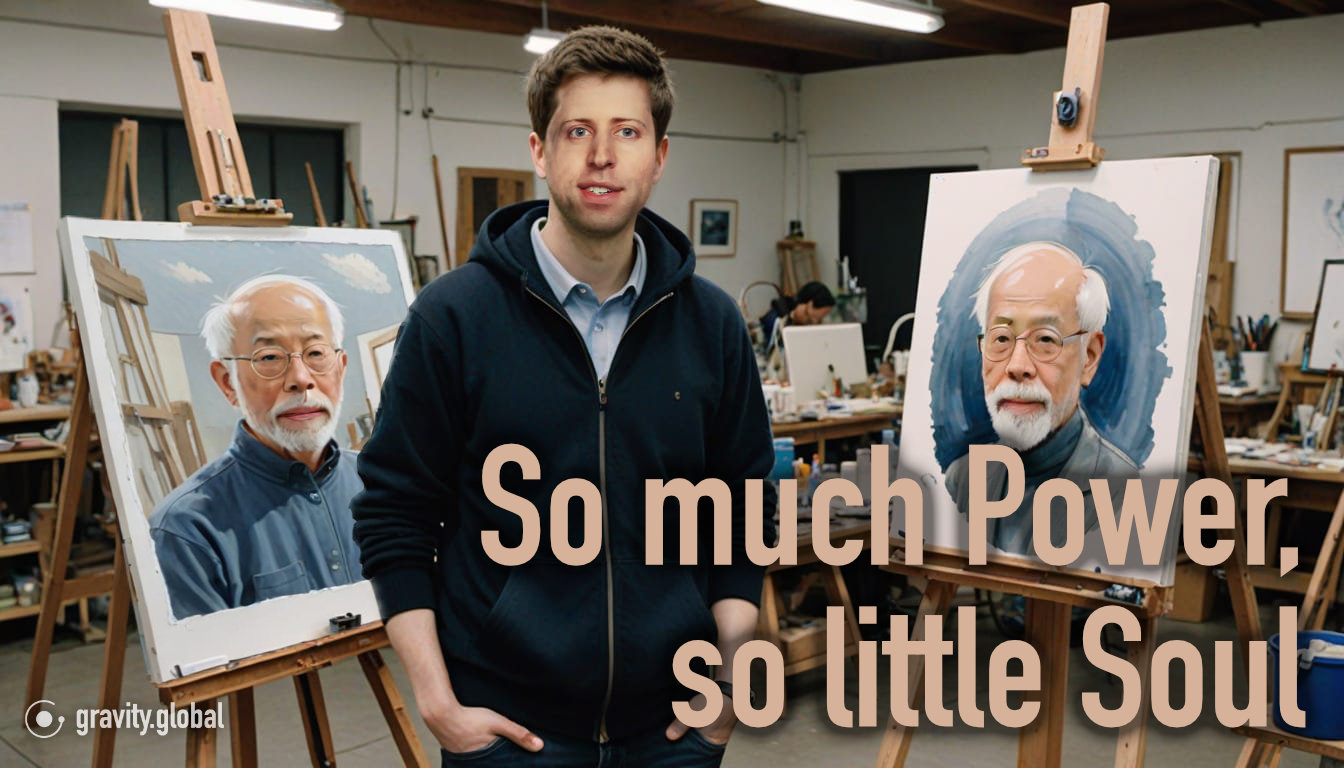Why Gravity Global is Steering Clear of Social Media Giants Like Meta, ByteDance and X?
In a world where social media presence is often synonymous with visibility and relevance, Gravity decided to stay away from the platforms owned by Meta and X.

In a world where social media presence is often synonymous with visibility and relevance, Gravity Global AG's decision to stay away from the platforms owned by Meta and X might seem counterintuitive to many. Gravity Global AG's absence from the likes of Meta's Facebook and Instagram, TikTok, and X, formerly known as Twitter, is a choice that resonates with a growing concern over the cultural and ethical landscape of these platforms.
From Platforms of Free Exchange to Echo Chambers of Extremism
What started as digital congregations for free exchange and community building have morphed, as noted by cultural scientist Michael Seemann. Seemann's observations, including in his book "Die Macht der Plattformen" (The Power of Platforms), shed light on a worrying transformation. Once champions of diversity in thought and interaction, platforms under the Meta umbrella and the newly rebranded X have veered off course, actively undermining the free exchange they once promoted.
The changes at X, amplified by the takeover by multi-billionaire Elon Musk, are particularly glaring. Musk's alterations to the platform's algorithms, staff, and policy on previously banned accounts have recalibrated X into something unrecognizable to its original user base. Alarmingly, X has devolved into a tool for the propagation of extremist views, under the guise of promoting 'free speech.'
A core concern highlighted by recent reports, such as the one from Bayerischer Rundfunk (BR), focuses on the misuse of platforms such as Twitter for spreading extremist propaganda. It has been argued that Twitter has become a tool for Nazi propaganda, which has raised alarms about moderation and oversight on social media platforms. Even though these platforms have community guidelines and mechanisms to report inappropriate content, the effectiveness and enforcement of these measures have often been called into question.
Additionally, as shown by multiple reports, including one from German Tagesschau, platforms like TikTok are facing a plethora of legal challenges globally. From allegations of improper data handling and privacy concerns to accusations of being a vehicle for harmful content, these issues paint a picture of legal and ethical complexities that businesses like Gravity Global AG prefer to avoid.
Pushing Beyond the Boundaries of Information Exchange
The reorientation of content toward explicit material is another step away from the platforms' original intent. This move, coupled with Meta's decision to dial down political content for economic gain, reflects a clear departure from fostering informed public discourse. The implications of such corporate decisions reach far and wide, affecting what information flows through our digital public squares and who controls it.
The Concentration of Digital Power and Its Consequences
Seemann articulates a critical concern over the 'For You' feeds implemented by most social media platforms, suggesting a shift from user-driven content discovery to a corporately curated experience. This change marks a significant power shift in the digital realm, one that has gone largely under-acknowledged. The resultant narrowing of the digital public sphere is not a development to overlook lightly.
Choosing a Different Path
Gravity Global AG has always championed the importance of aligning with platforms that reflect its values and standards. The decision not to engage with Meta or X's social media outlets is consistent with this commitment.
The ethical pitfalls and ideological battlegrounds that social media has come to represent are antithetical to what many believe technology should enable—a fair, open, and informed society.
The digital public space is undergoing a seismic shift, one that has seen the diminishment of a collective public sphere in favor of siloed, algorithmically dictated content streams. For a firm like Gravity Global AG, the choice to opt-out is a stance against contributing to a landscape that increasingly marginalizes critical public discourse in favor of monetization and polarization.
As Seemann bleakly concludes: “the golden era of social media as a force for good seems to be behind us. Companies and individuals alike are now faced with the challenge of navigating this new digital terrain, making choices that align with their values and visions for the future of our online world”.
For Gravity Global AG, it appears that the future lies beyond the ever-contentious realms of Meta, ByteDance and X, seeking instead to foster connections and community in spaces that uphold the principles of genuine engagement and ethical conduct.
Post Scriptum: LinkedIn Follows Suit
Interestingly, a closer look at LinkedIn, a platform once admired for its professional environment, suggests that my concerns are not limited to just Meta or X. Reports and personal experiences of users are beginning to show a change in the tone and nature of interactions on the platform.




Embrace the digital adoption platform of tomorrow - GRAVITY



Subscribe for Front-Row Seats!
Join Our Monthly Author Call – Stay Ahead of the Curve with the Latest Trends!








